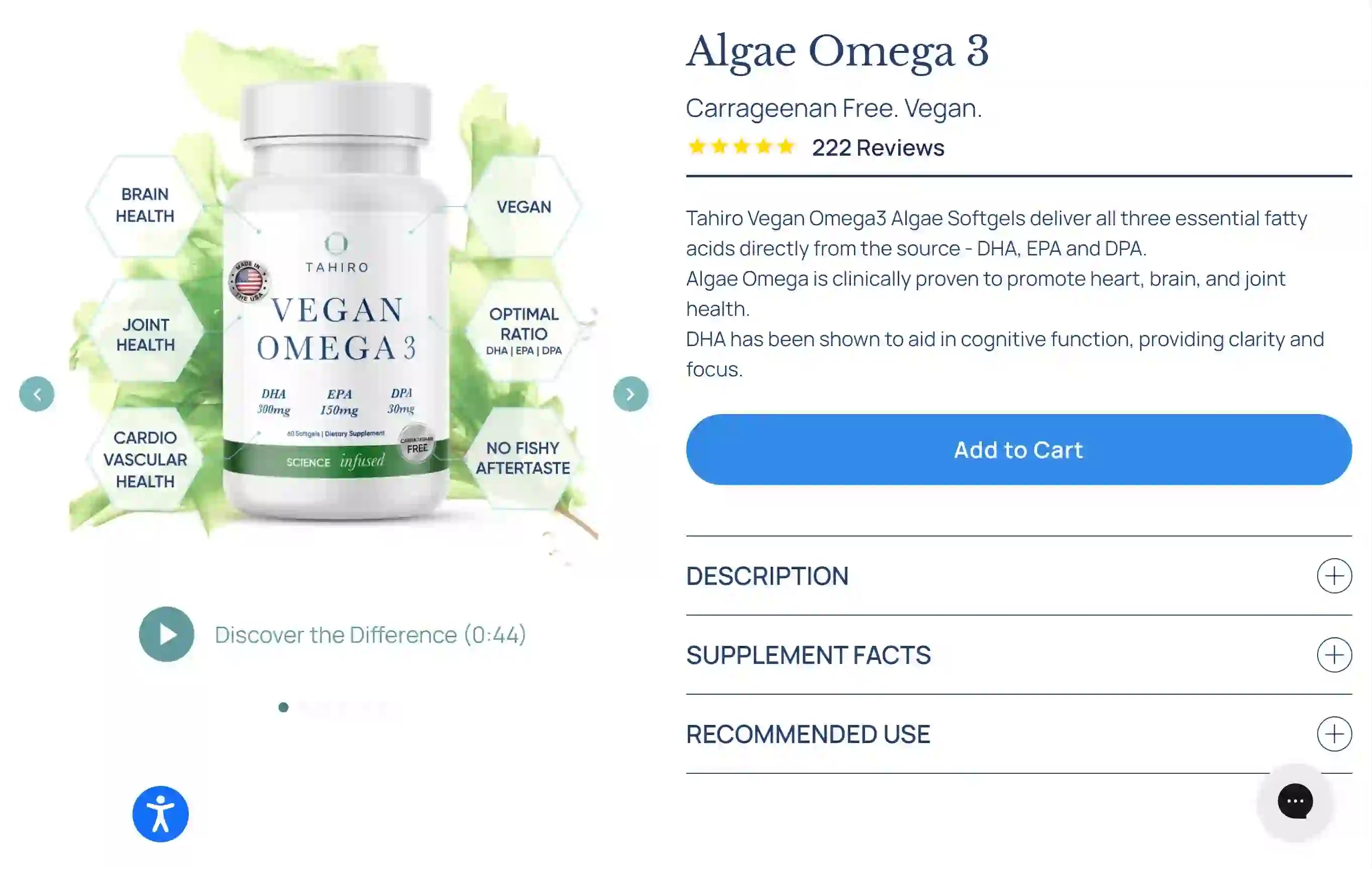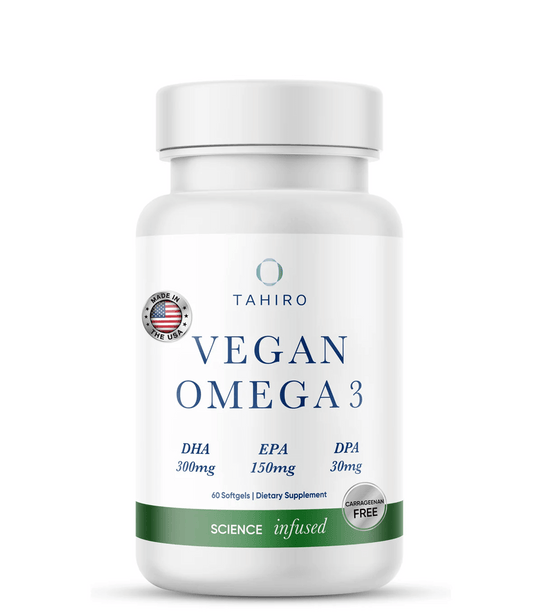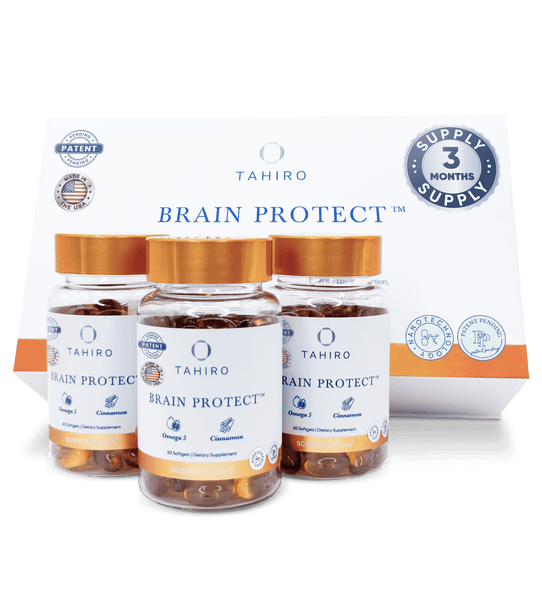Omega-3 fatty acids are essential to the body. Since the body cannot produce them, they must come through your diet. Since they have anti-inflammatory properties, they can help reduce inflammation.
However, there is more to omega-3 fatty acids than improving overall wellness. They can help improve heart health, support joint health, and improve mental health. In addition, it seems that omega-3 helps with memory.
So, how does omega-3 help with memory?
In this article, we’ll go through the health benefits of omega-3 fatty acids and how they can benefit brain health.
What Are Omega-3 Fatty Acids?
Omega-3 fatty acids are essential nutrients the body cannot produce. As a result, they need to come through the foods you eat. There are three main types of omega-3 fatty acids:
-
EPA (eicosapentaenoic acid). They have numerous roles in the body and help reduce inflammation. While they are mostly found in aminal sources (salmon, herring, and shrimp), you can also find them in algae.
-
DHA (docosahexaenoic acid). They are an important structural component of your skin and eyes. You can find them in sea products, like fatty fish and algae.
-
ALA (alpha-linoleic acid). It is the most common form of omega-3 and a precursor for EPA and DHA. You can mostly find them in plant sources, like soybeans, chia seeds, flaxseeds, and hemp seeds.
Benefits of Omega-3 Fatty Acids
There is a lot of evidence stating the benefits of omega-3 fatty acids. Here are some of the possible benefits of omega-3 fatty acids.
Reduced inflammation. Long-term inflammation can increase the risk of chronic illnesses. Omega-3 fatty acids seem to have anti-inflammatory properties, helping reduce inflammatory markers (1).
Improves heart health. Evidence suggests that omega-3 fatty acids can help reduce triglycerides (2). Also, it can increase HDL cholesterol (good cholesterol) and decrease the risk of blood clots.
Improves eye health. Since DHA plays a structural component of the retina, including a daily source of omega-3 can decrease the risk of macular degeneration (3).
Decreases depression and anxiety. Research (4) shows that omega-3 supplements may benefit people with depression and anxiety, helping them reduce their symptoms.
One of the strongest benefits of omega-3 fatty acids is its effect on brain health, both for adults and children. So, let’s take a closer look at the role of omega-3 in the brain.
How Do Omega-3s Affect the Brain?
Omega-3 fatty acids are essential for normal function and development in all life stages. They are part of the brain cells (particularly the cell’s membranes) and help facilitate the communication between brain cells.
In a 2022 study (5), 2,183 people were analyzed on their fatty acid composition and had an MRI taken. Based on the results, people with larger blood levels of omega-3 fatty acids had higher grey matter volume, leading to better reading and logical scores.
Other studies show that omega-3 acid consumption during pregnancy can improve brain development in the child (6). A study showed that women taking fish oil for brain health and their children had higher scores on brain function tests.
Finally, omega-3 fatty acids may help reduce the risk of dementia and improve brain function in those with dementia (7).
Which Is Better For The Brain EPA or DHA?
The two most important sources of omega-3 are DHA and EPA. But is one more important than the other?
DHA may improve brain development, memory, and overall cognitive function. However, EPA is best known for its effect on mood (8). Since they have different functions in the brain, it’s best to include both of them in the diet. Some omega-3 fatty acids may provide one more than the other, but the best options contain a combination.
How Long Does It Take For Omega-3 To Improve Brain Function?
When it comes to omega-3, you cannot expect to see the results immediately. Reducing inflammation and promoting all the brain-boosting benefits can take some time. While the time it takes to see the results may vary, on average, you may start noticing the effects 4 to 6 weeks after consistently taking omega-3.
However, keep in mind that the best results of omega-3 are seen when taken consistently for 60 to 90 days.
Should You Take Omega 3 for Your Brain?
You can find natural sources of omega-3 fatty acids. However, it is difficult to determine how much each food has since it depends on the source and farming processes. And, based on the research available, taking omega-3 regularly seems to have the greatest benefits.
For that reason, an omega-3 fatty acid supplement may be the best choice since you get a daily dose of omega-3, no matter what foods you add. Just make sure you choose a high-quality supplement.
What’s Better For Brain Development: Fish Oil or Algae?
There are two main sources of omega-3 fatty acid supplements: fish oil and algae. Most people focus on the first one without considering the latter one. However, research shows (9) that omega-3 fatty acids coming from algae have a high DHA-to-EPA ratio, which can help improve cognitive function and boost overall brain health.
One of the benefits of omega-3 supplements coming from algae is that they’re suitable for people who prefer a plant-based diet.









